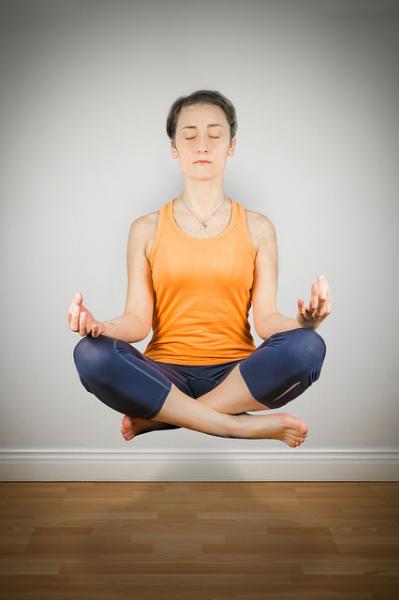I’ve written in the past about anecdotal and case reports from “alternative or complementary” medicine arguing that these reports do not rise to what we would consider scientific trials. A new study, using yoga as adjunctive care in patients with active rheumatoid arthritis suggests that at least for yoga, new age practitioners are looking for quantifiable, reproducible, mind-body connections.
Rheumatoid arthritis (RA) is a systemic autoimmune disease resulting in inflammation the results in joint damage, with associated pain and increasing loss of mobility. It is a disease with an unknown cause outside of the usual suspects of diet, genetics, immunologic issues, and environmental factors; effecting young women far more than men. While the 1.3 million Americans with RA are a small group compared to patients with diabetes, cardiovascular disease or cancer, the annual treatment costs, in the range of $20,000, take a toll on both individual and overall healthcare spending. As you might expect with a disease with no known cure, increasing pain and disability RA patients have about a 16% higher incidence of depression.
The research was designed to look at how yoga reduced the activity of RA as well as symptoms of depression. The activity of RA was measured by a range of well-established biomarkers for inflammation, alterations in immunity, cellular oxidative stress, and longevity. Depression was scored based on similar accepted scales. The study participants were 36 adults, being treated with medication for their RA for at least six months, able to participate in an eight week, two-hour a day, five day a week yoga program. [1] The control group, of 36 patients were well matched for demographics as well as scores for depression, RA activity, and functional status, continued their medications but did not participate in the yoga program. All participants could be characterized as have borderline moderate symptoms and signs.
The yoga group at the end of six weeks had statistically significant improvement in their biomarkers for systemic inflammation, and neuroplasticity (“re-wiring” or repair of neural structures to modulate brain activity); there were reductions in biomarkers of oxidative stress and equivocal findings concerning cellular aging. The reduction in systemic inflammation reduced both acute phase responses and reduced the longer lasting “hyperactive” immune response. More importantly, at least from a clinical viewpoint, the yoga group had a statistically significant and moderate size improvement in their depression scores, a score that improved fundamentally in parallel with decreasing activity of RA.
Chronic disease often travels with depression creating a bit of a chicken or egg dilemma and certainly suggesting that mind and body are not as separable as conventional Western thought has argued. The argument made by the researchers is that while medications have reduced the physiologic severity of RA, those medications do little to treat the depression that comes from waking daily with chronic pain and an inability to be your “physical best.” Yoga, as an adjunct, not a replacement, demonstrates a marked improvement in depression and as an additional benefit, reduces biomarkers associated with active RA.
The researchers conclude with two realistic statements. First, that when yoga is used, it requires what we can consider intense intervention, both in duration and frequency – yoga is not one and done, and it is more difficult to administer than just taking pills or injections. But given that caveat, yoga “can be beneficial as an adjunct in the management of this severe debilitating disorder.”
George Lundberg, the former editor of JAMA, once said, “There is no alternative medicine, only unproven medicine.” This study suggests that yoga is moving towards a proven benefit, it would be nice to have a new tool in the toolbox of care.
[1] The yoga program included physical postures, breathing activities and meditation modified to reduce the possibility of “further irritation and inflammation” on joints for these patients with active disease.
Disclaimer: I have started doing Yoga in the last year, I like it, and I know that it makes me feel better, at least when I’ve completed my routine. Perhaps is a return to my west coast youth.
Source Impact of Yoga based mind-body intervention on systemic inflammatory markers and co-morbid depression in active Rheumatoid Arthritis patients: A randomized controlled trial Restorative Neurology and Neuroscience DOI: 10.3233/RNN.180875




